Shreya Singhal: The student who took on India's internet laws
- Published
Law student Shreya Singhal: "It is a great victory"
The young law student who instigated the scrapping of a controversial Indian internet law has told the BBC she is "ecstatic" it has been overturned.
Shreya Singhal filed the first petition against the law - which allowed police to arrest people for comments on social networks and other internet sites - in India's Supreme Court in 2012.
On Tuesday, the court struck down Section 66A of the Information Technology [IT] Act saying it was "unconstitutional".
"This judgment is a victory for anyone and everyone who uses the internet. I am ecstatic," Ms Singhal told BBC Hindi's Shalu Yadav.
Ms Singhal challenged the law after several people were arrested for their comments on Facebook or Twitter in 2012.
"There were a slew of arrests, for comments people had posted on Facebook and the internet. A professor in the state of West Bengal was arrested for drawing a cartoon of the chief minister. It was funny, it was supposed to be sarcastic, but he was arrested," Ms Singhal said.
"A woman was arrested for questioning why Mumbai was shut down? Another woman was arrested for just liking this post. Then there was a businessman in Pondicherry who was arrested for making a comment about a politician. The comments were so innocuous," she added.
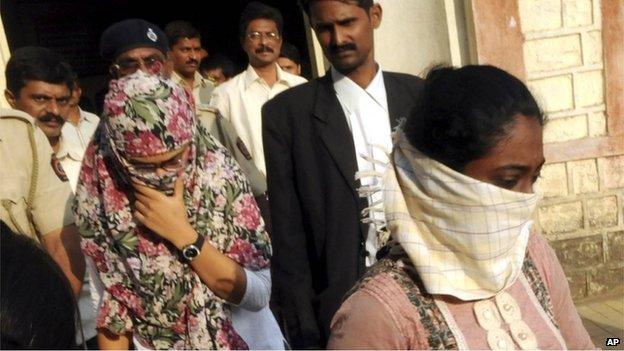
Ms Singhal was troubled by the arrest of Shaheen Dhada and Renu Srinivasan
"These arrests happened in quick succession, and I was completely shocked by their audacity. How can anyone be arrested for a light-hearted comment, made in jest?"
Section 66A was sweeping in its powers - it could send a person to jail for three years for sending an email or other electronic message that "causes annoyance or inconvenience".
"It says any information that is grossly offensive, or has a menacing character or is annoying could be considered an offence. In such a large society as ours, made up of different kinds of people, differences of opinion should be welcomed, dissensions should be welcome," Ms Singhal said.
The 24-year-old, who went to school in Delhi and did a three-year course in Britain in astrophysics, was in Delhi to apply to law schools when she filed her petition.
"I come from a family of lawyers, but it was educative for me to see it all first hand, I was there for all the hearings in court," she said.
Ms Singhal and her lawyers argued in court that Section 66A was unconstitutional and violated their right to free speech and expression and did not come under reasonable restrictions law.
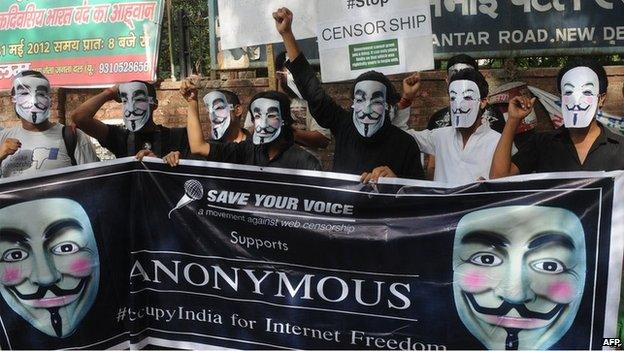
Critics said the law restricted the principle of free speech
The government admitted that the law was being misused, but insisted that there was a need for it and that it did come under reasonable restrictions.
India's solicitor general, who represented the government, assured the court that the the law would be used "judiciously".
"But governments have political agenda and they change, and an assurance given by one government may not hold for the next one. The laws are made for the citizens and the laws are meant to protect them, but this law wasn't protecting them, it was harming them," Ms Singhal said.
She did not know any of those who were arrested under the law but said she had to do something as "great injustice was done to them".
"They were the unlucky few who got arrested, but it could have been anyone. It could have been me," she said.
- Published24 March 2015
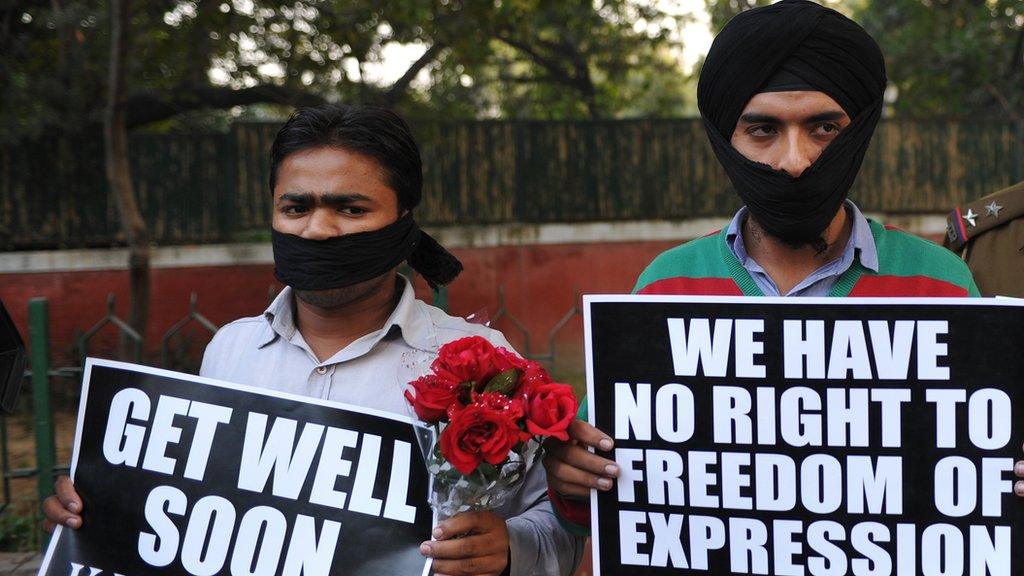
- Published26 November 2012
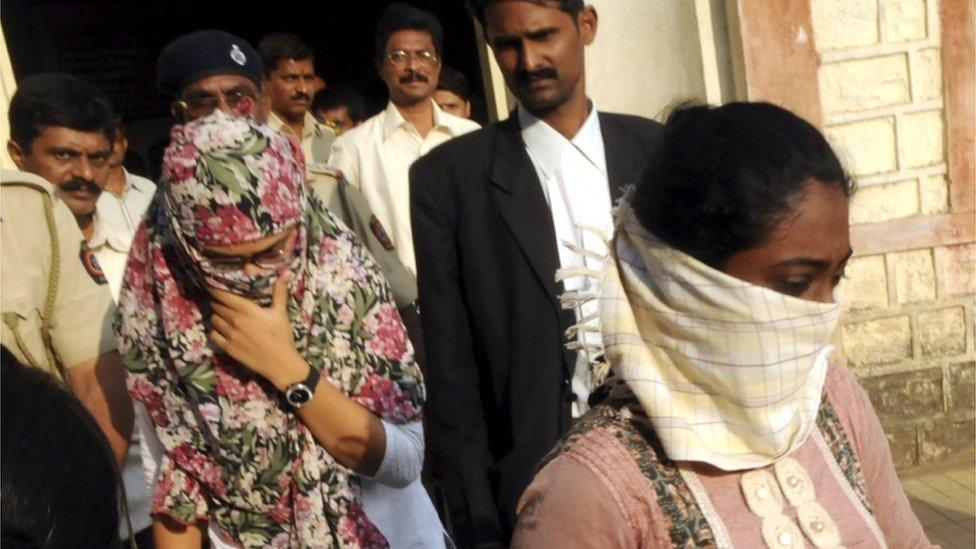
- Published6 November 2012
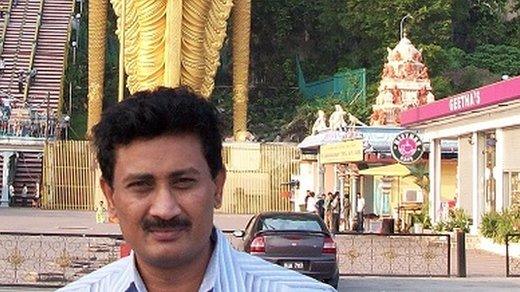
- Published20 November 2012

- Published29 November 2012
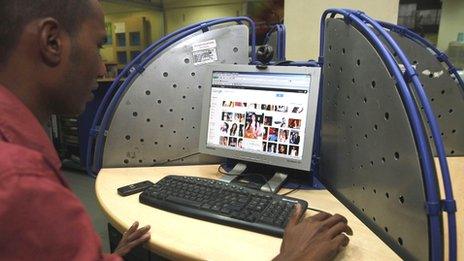
- Published20 November 2012

- Published19 November 2012
